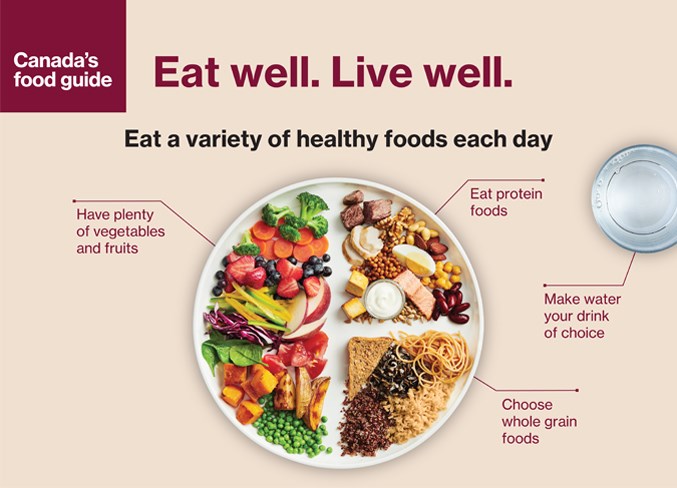Revisions to Canada's Food Guide has local dairy and meat producers worried about the impact it could have on their industry.
This is the first update to the food guide in more than a decade. The changes include having fruit and vegetables make up the majority of each meal, and a preference over plant-based proteins instead of meat. It also suggests water as the drink of choice, and eliminates the 'dairy and alternatives' category altogether.
"I think that people won't be buying as much, because there's a lot of people that whatever the government puts out, dietary-wise, they're going to follow what's on the list," expressed Sharon Johnson, co-owner of Johnson Family Farm, a local dairy and beef operation.
Alberta Beef Producers Zone 8 director and Iron River farmer, Gordon Graves, is "hugely disappointed" with the new guide.
"It mind boggles me that so-called intelligent people can be that far wrong. Do we have to eat green vegetables? Yes. Do we have to have plant protein? Yes... Look at apples-to-apples comparison, and you'll find that having beef five to seven times a week isn't harmful to the environment or your health," exclaimed Graves.
The most recent version eliminated the four food groups completely, and instead organized them into three categories: fruits and vegetables, whole grains, such as brown rice and quinoa, and protein foods, which are considered lean red meat, fish, poultry and nuts.
Local registered dietitian, Sarah Campbell, was pleased to see this rendition focusing on scientific review to map out a guideline for Canadians looking to eat healthier.
"I'm personally very thankful they've taken out the dairy, meat, and juice because that really put a lot of industry bias into Canada's Food Guide. I think that the best to Health Canada's ability, they've done a really good job of just looking at the science to inform this guide," she expressed.
Campbell added, "But saying that, I know there are many groups... that say Health Canada missed recent and relevant interpretations of science. You're going to get a lot of people who are going to say 'they didn't consider this accurately' or 'give enough attention to this.' Particularly on the saturated fats and dairy. But, I think it's done a really good job of, as much as possible, taking the industry bias out of the resource."
Another aspect that's different this time around is specific portions or servings are gone.
"It recognizes that gender, the type of body composition you have, and activity level really change the serving sizes. It's given it just into proportion guidelines, rather than a prescribed amount," Campbell noted.
With the suggestion to focus on fruits and vegetables, Johnson worries that budget restrictions will prevent people from buying local.
"The fruit and vegetable section, a lot of those aren't local to Canada year-round. From a financial point, the food budgets are going to have to be raised somehow, and if people aren't already watching their food budget, are they going to be able to eat that many kinds of vegetables?"
The update recognizes that healthy eating is more than just the foods you consume, and encourages Canadians to be mindful of their eating habits and to enjoy their meals.
"They highlight a little bit about... cooking with others to transfer food skills, not only to younger generations, but between different cultural groups. I think that really strengthens relationships and community. That's something totally new to this revision of the food guide, and I think it's wonderful," expressed Campbell.
Cooking more often and planning your meals are some other suggestions.
It also encourages limiting processed foods, and preparing meals and snacks using ingredients that have little to no added sodium, sugars, or saturated fat.
Campbell described it as a good "starting point" for those looking to eat healthier.
Graves hopes a change will come that takes into account different forms of information, and the plan be changed with those factors in mind.
"Put all the parameters on the table, and put a good guide on the table that's based best for our health and the planet. What they've come up with is neither."



